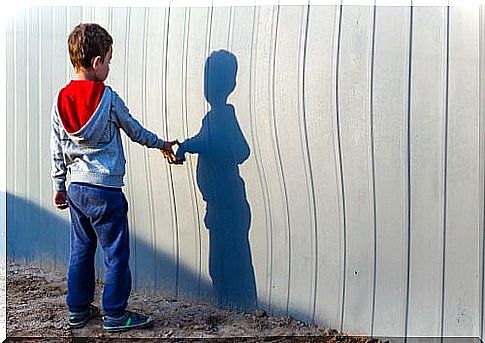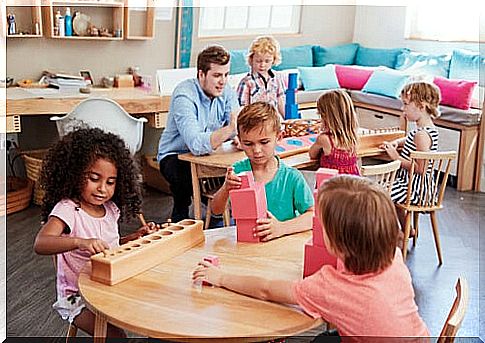Your Child’s Imaginary Friend

An imaginary friend accompanies many children. These are often characters that appear in very creative and sensitive children. They play an important role in their emotional development. However, for parents, they can become a problem. In this article, we’ll explain what to do if an imaginary friend has appeared in your child’s life .
An imaginary friend – why do children create such a character?
These beings, created by the vivid and fantasizing mind of children, can appear from the age of 2, when the child begins to learn the language and understand the environment in which he lives. Their existence is due to several reasons, and in general, just as they suddenly appear, just as suddenly they depart.
Parents are surprised to see their child playing and talking to himself. When you ask the child a question about what’s going on, he calmly replies that it is his new friend – made up. While this can be a parent’s concern, imaginary friends are part of a child’s emotional development. Sometimes they appear in very creative and sensitive minds.
An interesting study was conducted on 152 children aged 3 to 4 years old by scientists Marjorie Taylor and Stephanie Carlson from the universities of Oregon and Washington. It showed that two out of every three children have imaginary friends.

However, we cannot exclude the appearance of these characters as signs of experiencing deficiencies in the area of perceived feelings or some emotional shock.
In these situations, an imaginary friend becomes an ally who can help the child in difficulties. It is about strong experiences such as the parents’ divorce, the arrival of new siblings, changing schools or moving to another city or country.
My son has an imaginary friend! What should I do
The first thing you can do when you discover that your child has an imaginary friend is to remain calm. Up to the age of 8, it is normal for a child to spend time with an imaginary companion. It is us as parents who must learn to deal with this situation with respect and love.
Act naturally
Avoid ignoring this character or denying that your child’s imaginary friend exists. Treat the situation naturally, without encouraging or forbidding the relationship. Remember that it is part of his life for him.
Meet an imaginary friend
It is recommended that parents get to know their children’s new friend, just as in a normal friendship. By asking for details you will find out what it means for your baby and you will know better how to deal with it.
An imaginary friend should not be an excuse or an excuse
If your child is using this character to bypass a rule or commit some kind of stupidity, don’t let it happen. Teach him to accept responsibilities and be aware of what discipline is, whether an imaginary friend is next to you or not.
Support meetings with real children
While your relationship with these imaginary companions must be respectful and tolerant, encourage your child to get to know other children and share the fun with them. This way you stimulate his psychosocial skills.
Over time, most likely, an imaginary friend will begin to appear less and less until it disappears completely.

When is an imaginary friend a cause for concern?
In general, when a child has an imaginary friend, there is nothing to worry about. However, if any of the following occurs, it is recommended that you seek the help of a psychologist or therapist.
- The child isolates himself and prefers to play with an imaginary friend rather than with real friends.
- You may observe a child’s excitement, loss of control, mental disorientation, or irritability when an imaginary figure appears.
- The personality of an imaginary friend causes discomfort or fear in the child.
As we always say, the time and attention you give to your child is crucial in detecting any real problems in time. So be vigilant as you calmly accompany your child in their emotional development.









